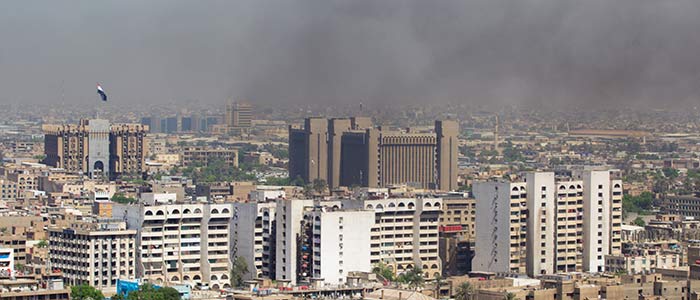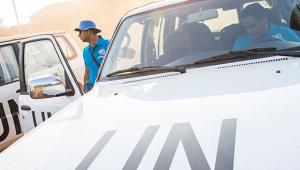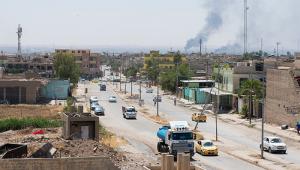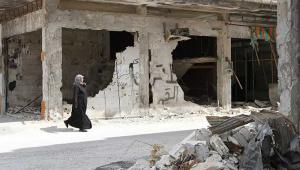Web_Baghdad_shutterstock_319901072.jpg

Baghdad, Iraq
The agency’s $584m appeal for displaced people in the region was only 32% funded as of 2 August. It warned that preparations to the 1.2 million people who could be affected by the military offensive will therefore be limited.
The mission to recapture Iraq’s second-largest city from IS is expected to be one of the most difficult yet, due to its density.
It will be the most populous city Iraqi forces have attempted to liberate so far, and is likely to lead to significant displacement. The UN warned in May it would need $284m to start aid preparations ahead of the offensive.
“UNHCR is doing what it can to build more camps to accommodate people and mitigate suffering, but additional land for camps and funding is still needed,” UNHCR spokesman Adrian Edwards told a news conference yesterday.
The agency has drawn up contingency plans to provide shelter for up to 120,000 people, and across the region a series of camps are in the process of being expanded or established.
In Debaga, where two camps were completed in July and August to house displaced Iraqis, UNHCR is looking to construct an additional site due to the number of daily arrivals.
Edwards said the camps in Debaga have swollen “nearly tenfold” in just a few months, and before the battle for Mosul has even begun. From one camp housing 3,500 displaced people in March, there are now several sites housing more than 34,000.
Iraq is already one of the biggest internal displacement crises in the world. Some 3.38 million people have fled their homes since January 2014.
Ahead of the Mosul offensive, the UNHCR is looking to set up camps in up to six locations across northern Iraq, although Edwards noted this depends on funding and the availability of land, which is identified by local authorities.
Finding available land for the new camps has also become a “critical issue”, he said. Many private landowners are willing to lease land or available land may be unsuitable, for example due to its proximity to military operations, the risk of landmines, or due to it being located in an area where the arrival of displaced Iraqis could inflame tensions.
“The human impact of the military offensive [in Mosul] is expected to be enormous,” Edwards said. “Everything possible should be done to ensure the safety and dignity of people affected.”













